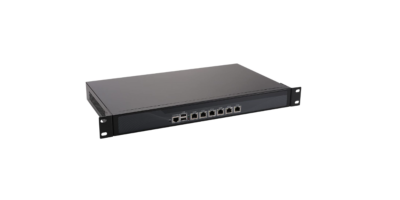In the ever-evolving healthcare landscape, maintaining robust, secure, and efficient IT systems is no longer optional – it’s essential. From electronic health records (EHRs) and telemedicine platforms to cybersecurity and compliance, managing IT in a healthcare setting is complex and time-consuming. For many medical facilities, the most strategic move is to outsource healthcare IT management to specialized providers.
Outsourcing can bring expertise, scalability, and cost-efficiency – freeing up your internal teams to focus on patient care. But how do you know when it’s the right time to make that move? Here are seven clear signs that your healthcare practice or facility could benefit from outsourcing IT management.
1. Your In-House IT Team is Overwhelmed
If your internal IT staff is constantly playing catch-up – juggling help desk tickets, managing network issues, and trying to implement security patches – they’re likely overwhelmed. Healthcare IT environments require constant monitoring and rapid response. An overworked IT team can lead to downtime, delays, and even compliance violations.
By choosing to outsource healthcare IT management, you gain access to a team of experts who can provide 24/7 monitoring, issue resolution, and proactive maintenance – without burning out your internal resources.
2. Outdated Technology is Slowing You Down
Is your hardware outdated? Are you still running unsupported software or using legacy systems that can’t keep up with modern workflows? If so, you’re not only compromising efficiency but also putting your data at risk.
An outsourced healthcare IT provider can help modernize your infrastructure – migrating your systems to the cloud, upgrading EHR platforms, and ensuring compatibility with the latest tools and devices. With managed IT services, upgrades and updates are handled proactively, keeping your technology current and your practice competitive.
3. Security Threats are Becoming More Frequent
Cyberattacks in the healthcare industry are on the rise. Ransomware, phishing, and data breaches can cost millions – and severely damage your reputation. If your IT team is struggling to keep up with security updates, threat detection, and compliance audits, it’s a serious red flag.
Outsourcing IT management brings in cybersecurity experts who specialize in healthcare regulations. They’ll implement multi-layered protection, monitor your systems for suspicious activity, and ensure you meet HIPAA, HITECH, and other compliance standards. It’s a critical step to safeguard patient data and avoid costly penalties.
4. You’re Expanding or Opening New Locations
Growth is exciting – but it also introduces new IT challenges. Whether you’re adding new exam rooms, expanding into new facilities, or offering virtual care services, your technology needs to scale accordingly.
If your current IT resources can’t keep up with your expansion plans, that’s a sign it’s time to outsource healthcare IT management. A trusted managed service provider (MSP) can quickly deploy infrastructure, set up secure networks, integrate systems across locations, and manage everything remotely, ensuring seamless performance from day one.
5. You’re Dealing with Recurring Downtime
Frequent IT outages, sluggish systems, and software crashes can interrupt daily operations and impact patient care. Worse, downtime leads to frustrated staff and dissatisfied patients.
Outsourcing brings proactive monitoring and fast-response troubleshooting to the table. Expert IT providers minimize downtime through predictive analytics, routine system health checks, and 24/7 support. This keeps your practice running smoothly and ensures a better experience for both staff and patients.
6. IT Costs are Unpredictable or Growing
Maintaining an in-house IT department can be expensive. Salaries, benefits, ongoing training, hardware costs, software licenses, and surprise repairs can quickly eat into your budget. If you’re finding it hard to predict or control your IT spend, outsourcing can help.
Managed IT services offer predictable monthly pricing models, helping you control costs while getting access to enterprise-level tools and expertise. You only pay for what you need – no hidden fees, no unexpected expenses.
About 75%–80% of healthcare facilities now outsource key IT functions, recognizing the complexity of maintaining critical infrastructure.
7. Compliance and Reporting Are Too Complicated
Regulatory compliance in healthcare is complex and constantly evolving. From HIPAA to PCI DSS to state-level data protection laws, ensuring compliance requires time, documentation, and expertise.
If you’re unsure whether your systems meet the latest requirements – or if audits and reporting are causing headaches – outsourcing is a smart move. Experienced healthcare IT providers specialize in compliance support. They’ll maintain logs, encrypt data, ensure proper access controls, and assist with audits to keep your organization in full compliance.
Final Thoughts
Technology is the backbone of modern healthcare – but managing it in-house isn’t always the most effective or secure path. If you’ve recognized one or more of these seven signs, it may be time to outsource healthcare IT management to ensure your organization remains compliant, efficient, and protected.
Outsourcing gives you access to a full team of experts, predictable costs, state-of-the-art technology, and peace of mind knowing your IT systems are in capable hands.
Ready to Modernize Your Healthcare IT? Let’s Talk
At MedicalITG, we specialize in healthcare IT services designed to meet the unique needs of medical practices, clinics, and healthcare facilities. From security and compliance to support and infrastructure upgrades, we’ve got you covered. Contact us today at (877) 220-8774 or email info@medicalitg.com to schedule a consultation and see how our team can support your IT needs.










